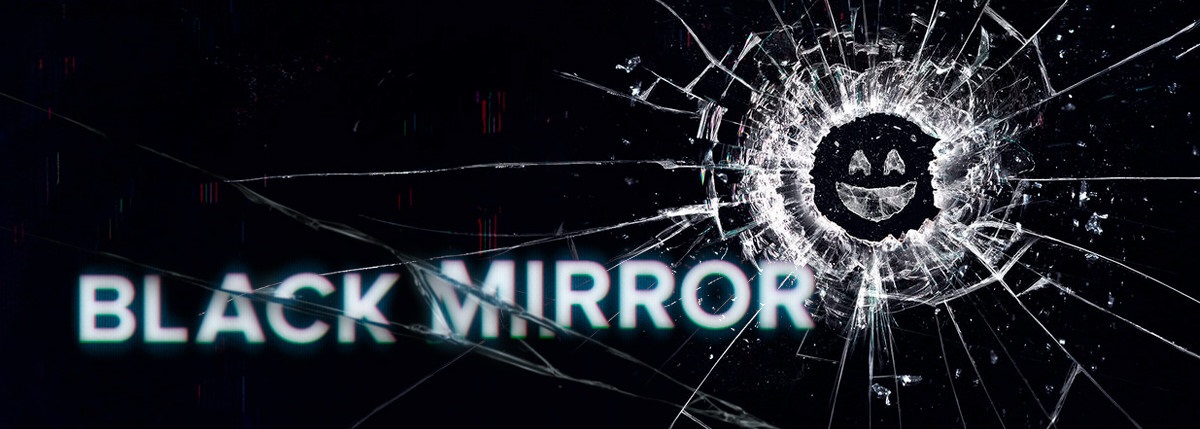
Nosedive
For anyone who has not seen it, Black Mirror is an award winning British science fiction series that centres around dark and satirical themes particularly with regard to unanticipated consequences of new technologies.
The episode Nosedive is set in a world where people rate each other from one to five stars for every interaction they have. Your current average rating can be seen by others and has significant influence on societal status and consumer benefits. The main character Lacie is seeking a 4.5 rating in order to qualify for a discount (and the opportunity to rent) a luxury apartment.
She uses the services of a personal rating consultant who is guiding her on ways to raise her rating to that 4.5 level.
Through a series of unfortunate events, the rating system starts to work against her as her personal rating falls.
This clip shows how a person to person review and rating society could develop, and the episode overall feeds on the anxiety that such a world is not far into the future as it's already happening in a disconnected way (such as Uber driver and passenger ratings affecting your status in the service).
From time to time we get asked if our platform is like Black Mirror's Nosedive, so here's how we do, and do not compare.
How we are similar to Black Mirror (in a good way)
We do share some characteristics with the Black Mirror Nosedive world;
- We do provide real time person to person reviews that increase personal accountability and performance
- We do support ratings (though your employer can turn these off)
- We do make it easy to be identified for review by others through search results, name badges, email signatures, QR codes, POS receipts and so on
- We do make a 2-way connection between reviewer and person being reviewed to establish or reinforce an ongoing relationship
- We do accumulate your reviews into a life-long history that you can reflect and learn from at any time
- We do provide reputation portability, where your history moves with you (think about learning and development in the gig economy)
- We do encourage a habit of providing observations as frequently as possible
- We do have zero tolerance for profanity and abuse
We consider all of these can be positive aspects of a review paradigm that drives personal accountability and self-improvement in a respectful way.
How we are different to Black Mirror (in some very important ways)
We also have some major differences in comparison to the Nosedive paradigm. These differences are important and we consider all of them essential for psychological safety in the world of real time person to person review;
- We do not rely on scores; we capture a narrative you can learn from not an arbitrary score without coaching context
- We do not make review content public; Reviews are private between yourself, your reviewer (and your manager if it's about work)#1
- We do not pass on anonymous reviews or reviews from outside your reviewer network without these being moderated
- We do not compare one person with another or infer relative performance to others from reviews #2
- We do not incentivise reviews with material rewards. There is an an intrinsic reward from being helpful which drives up authenticity and reduces quid pro quo reviews
- We do not have penalties for negative reviews. Reviews are private for the recipient to learn from. People don't learn if in fear of reprisals.
- We do not interrupt focus and attention with review content in real time. Reviewers choose when they want to access new reviews
- We do not require a face to face encounter or transaction to trigger a review; give a review at any time, request a review at any time
Working with Neuroscientist and Psychologists we've determined these factors protect and empower the recipient of the review rather than the provider of the review.
This empowerment flip is critical, so that reviews become a safe candid learning resource for the recipient rather than having social value for the reviewer.
You still have influence
We believe it's inevitable that person to person review will enter daily life.
Things are moving closer day by day with examples such as Uber's rating system of drivers and passengers, Airbnb's rating system of hosts and guests, and the purchase of TBH (a new generation of feedback app) by Facebook.
The only question is how do we want this to look?
We aim to be the ethical person to person feedback platform, using trust, respect, accountability and privacy to create a safe platform where feedback is a force for good.
If you like the idea of Black Mirror, we think that is close to where market forces will drive things; placing material value on a public reputation score that is decided about you by the degree to which you consume and conform.
On the other hand, if you believe in benefiting from continuous performance signals, whilst being the only one keeping score, then we're on the same page.
You can register here for free, get your Feedback ID™, and share it (and what we do) widely to help us remain the gold standard of person to person feedback platforms.
We are looking forward to welcoming you and your trusted reviewers onboard.
#1 A small proportion of reviews are paraphrased in social media promotions on a first name basis only
#2 Some employers may choose to use analytics to identify patterns of performance, or sentiment by workgroup